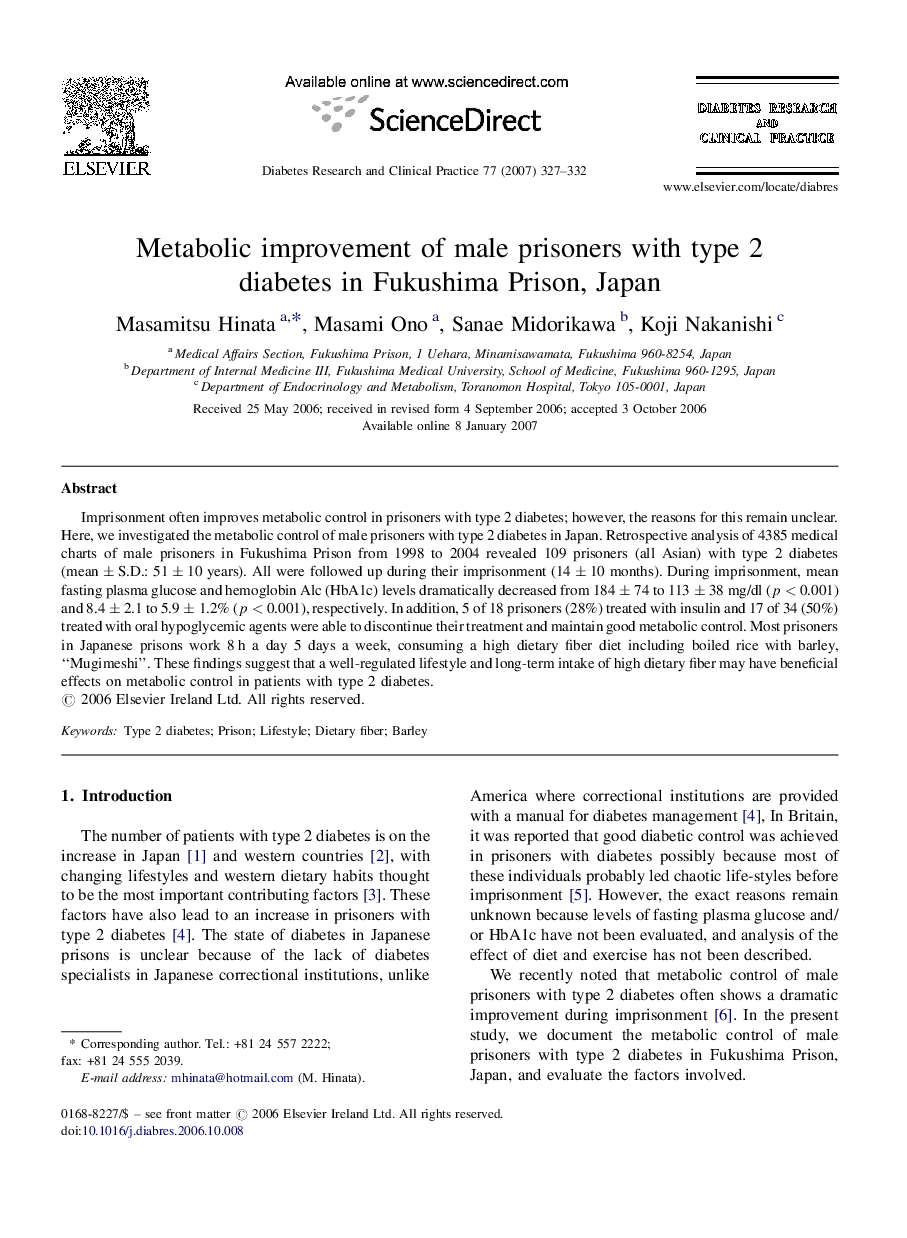| Article ID | Journal | Published Year | Pages | File Type |
|---|---|---|---|---|
| 2798698 | Diabetes Research and Clinical Practice | 2007 | 6 Pages |
Imprisonment often improves metabolic control in prisoners with type 2 diabetes; however, the reasons for this remain unclear. Here, we investigated the metabolic control of male prisoners with type 2 diabetes in Japan. Retrospective analysis of 4385 medical charts of male prisoners in Fukushima Prison from 1998 to 2004 revealed 109 prisoners (all Asian) with type 2 diabetes (mean ± S.D.: 51 ± 10 years). All were followed up during their imprisonment (14 ± 10 months). During imprisonment, mean fasting plasma glucose and hemoglobin Alc (HbA1c) levels dramatically decreased from 184 ± 74 to 113 ± 38 mg/dl (p < 0.001) and 8.4 ± 2.1 to 5.9 ± 1.2% (p < 0.001), respectively. In addition, 5 of 18 prisoners (28%) treated with insulin and 17 of 34 (50%) treated with oral hypoglycemic agents were able to discontinue their treatment and maintain good metabolic control. Most prisoners in Japanese prisons work 8 h a day 5 days a week, consuming a high dietary fiber diet including boiled rice with barley, “Mugimeshi”. These findings suggest that a well-regulated lifestyle and long-term intake of high dietary fiber may have beneficial effects on metabolic control in patients with type 2 diabetes.
